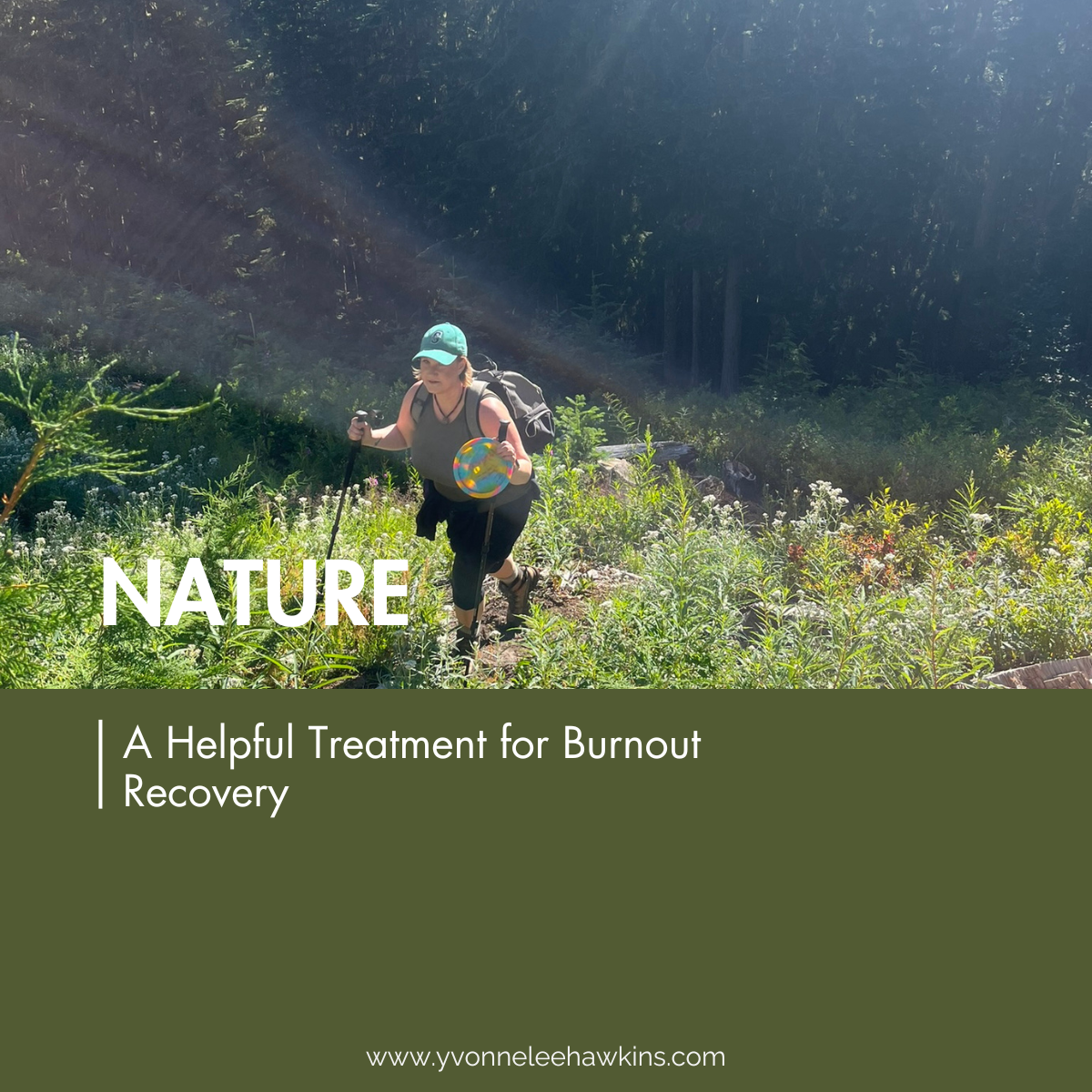With rising rates of burnout being reported worldwide, finding effective ways to prevent it is essential for long-term well-being. A simple and inexpensive treatment includes spending more time outdoors. Nature offers a powerful way to recover from burnout, giving us a chance to reset, recharge, and reconnect with ourselves. This article explores how reconnecting with nature enhances well-being, helping to prevent burnout in the first place, and outlines actionable steps to incorporate the outdoors into your life starting today.
The Healing Power of Nature
Humans have an innate connection to nature, often referred to as “biophilia,” a term introduced by biologist E.O. Wilson. This inherent bond drives us to seek connections with the natural world. Unfortunately, modern lifestyles keep many of us indoors, surrounded by screens and artificial lighting, leaving us unbalanced and more susceptible to stress and burnout.
Research demonstrates that time in nature, and specifically in natural sunlight, significantly improves mood, boosts immune function, and enhances overall health. Natural environments stimulate our senses and activate a relaxation response, countering the stress-induced fight-or-flight state. The sights, sounds, and smells of nature create a grounding experience that reconnects us with inner calm and vitality.
Restoring Balance Through Nature
Exposure to nature counteracts burnout symptoms such as fatigue, irritability, and emotional exhaustion. Even brief encounters with natural settings reduce cortisol levels, lower blood pressure, and promote relaxation. When you are experiencing extreme mental stress, perhaps from work or life pressures, but then spend time in a serene and calming natural environment, your body’s receptors begin to notice that the threats you imagine are not imminent. This allows you to begin to relax. Nature also helps to guide us into emotional recovery by evoking awe, wonder, and a sense of connection to something greater than ourselves. This shift in perspective offers comfort and clarity, helping us navigate life’s challenges.
Practical Ways to Reconnect with Nature
If you’re ready to integrate nature into your wellness routine, here are actionable steps you can take today:
- Take a Daily Nature Break: Spend 10 minutes walking outdoors, ideally in a green space like a park or trail. Even short walks can reduce stress and lift your mood.
- Create a Natural Space at Home: Add plants to your living or workspace to bring nature indoors. A small garden or natural decor enhances this connection further.
- Practice Mindful Observation: Focus on details in nature, the sound of birds, the texture of leaves, or the smell of fresh grass—to center yourself and reduce stress.
- Unplug Regularly: Disconnect from devices during nature walks or outdoor activities. Consider a weekend camping trip to fully immerse yourself in the environment.
Outdoor Activities and Mental Health Benefits
Spending time outdoors not only boosts physical health but also supports mental well-being. Outdoor activities promote relaxation, improve mood, and create a sense of play—essential for breaking the burnout cycle. Activities like hiking, gardening, or even mindful meditation outdoors encourage the release of endorphins, serotonin, and dopamine, which improve mood and reduce anxiety.
Specific Outdoor Activities and Their Benefits
- Walking and Hiking
- Walking or hiking reduces stress, enhances creativity, and improves focus. Natural trails engage different parts of the brain, helping you refresh and reframe your thoughts.
- Actionable Step: Incorporate a 20-30 minute walk into your routine several times a week. Seek out different parks or trails for a more immersive experience.
- Forest Bathing (Shinrin-Yoku)
- This Japanese practice involves immersing yourself in a forest environment to engage all your senses. It reduces cortisol levels, improves mood, and enhances immune function. For more interesting things about Forest Bathing, visit my earlier article here.
- Actionable Step: Spend 30 minutes in a wooded area, focusing on the sights, sounds, and smells around you. Leave devices behind to fully connect with nature.
- Gardening
- Gardening combines physical activity with creativity and mindfulness. It reduces depression and anxiety symptoms, boosts self-esteem, and provides a sense of accomplishment. It also gives you a sense of how nature takes it’s time and that you cannot rush success. Planting a seed and then checking it daily only interferes with it’s ability to grow.
- Actionable Step: Start a small garden at home or care for indoor plants. A windowsill herb garden is a great option for limited space. If you are like me, it might be easiest to start with a few small succulents or air plants that require very little care. My favorite plant is a Snake plant. Not only does this plant help to remove a large amount of toxins from the air, but you can basically drown it in water or forget about it for weeks and it still survives.
- Biking
- Cycling outdoors provides cardiovascular benefits while reducing stress and improving mood. It’s an excellent way to explore your neighborhood and connect with your surroundings.
- Actionable Step: Plan a weekly bike ride in a park or along scenic trails. Gradually increase distance as your stamina builds.
- Meditation or Yoga in Natural Settings
- Practicing yoga or meditation outdoors combines mindfulness with the calming effects of nature. This promotes relaxation, reduces stress, and enhances gratitude.
- Actionable Step: Find a quiet outdoor space for yoga or meditation at least once a week. Use a mat or cushion for comfort and focus on your surroundings before starting.
Additional Tips for Incorporating Nature
- Commit to a Green Hour Each Week: Dedicate one hour weekly to outdoor activities without digital distractions.
- Practice Gratitude in Nature: Take moments to notice and appreciate the beauty around you; this helps to build a more positive outlook.
- Explore Diverse Environments: Visit mountains, rivers, lakes, or beaches to experience varied sensory benefits. I feel really lucky to live in the Pacific Northwest where within a couple hours’ drive in any direction you can see ocean, desert, rain forest and mountains. Explore whatever is near where you live.
- Bring Nature to Your Workspace: Add plants or nature-inspired decor to your office for a calming influence. Include natural and neutral colors to help set the ambiance.
Reconnecting with nature offers profound benefits for burnout recovery and holistic wellness. By immersing ourselves in the natural world, we escape daily pressures, restore balance, and nurture our mental health. Small, intentional steps to incorporate nature into our routines can have a lasting positive impact.
Whether you find solace in a forest, on a beach, or in a garden, let nature be your ally in cultivating resilience and vitality. Start today by stepping outside, breathing deeply, and letting the natural world guide you toward a healthier, more harmonious life.
Did this topic add value to you? Please like and
subscribe if you want more topics like this, or comment or DM me. I always love
suggestions and feedback!
And if you are too burned out and overwhelmed to even
begin to use any of these strategies it might be time to get some help. Find a
coach, therapist, or doctor who can help you reverse out of the physical,
mental, and emotional symptoms of burnout so you can get back to living in
healthy balance.
Remember, Self-care isn’t selfish…it’s required!
Yvonne Lee-Hawkins, IPHM, is a holistic wellness coach,
stress strategist, and writer, who spent 20 years in corporate and leadership
functions. When she is not working, she loves to go on nature adventures with
her family, in the Pacific Northwest where they call home. You can find out
more on her website,
or follow her on LinkedIn,
Medium, or Instagram.
If you want some help enjoying nature and your
environment, with Burnout recovery, or general wellness, schedule a call here.

